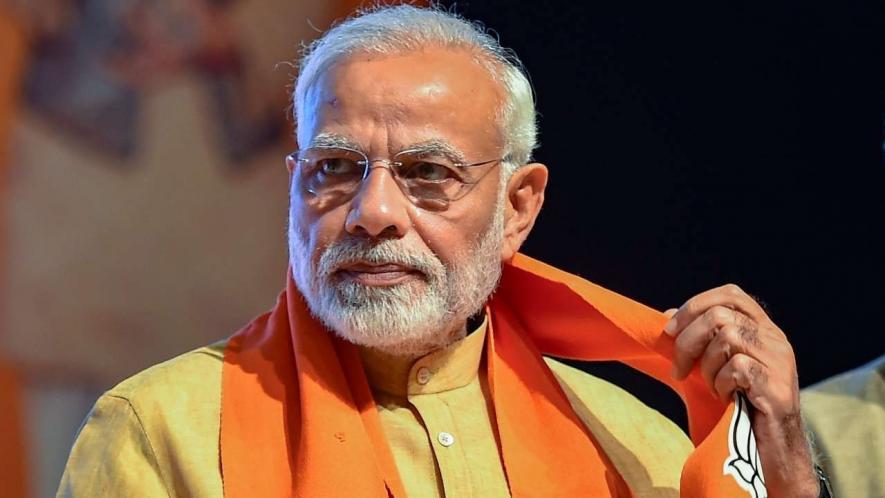Civil Society Groups and Activists Release "Chargesheet" Against Modi Government's Parliamentary Practices

New Delhi: Civil society groups and activists have issued a scathing "chargesheet" against the Narendra Modi government, alleging violations of parliamentary norms and principles. Released on Friday, the document outlines a series of grievances, including the absence of a Deputy Speaker in the Lok Sabha, minimal parliamentary sittings, reliance on ordinances, and insufficient discussion on crucial bills.
According to The Telegraph, Ahmedabad-based Jesuit activist Cedric Prakash, speaking during the online release of the chargesheet, emphasised the importance of bringing these concerns to light, stating, "We need to take this chargesheet to the rest of India…. Fear has prevented lots of people from speaking out."
Among the key points raised in the document is the unprecedented vacancy of the Deputy Speaker's position in the Lok Sabha, contrary to the constitutional mandate outlined in Article 93. The tradition of appointing an opposition nominee to this role has been flouted, marking a departure from established parliamentary practices. The document said: “This is the first time since Independence that the term of a Lok Sabha will complete with the post of Deputy Speaker remaining vacant despite the mandate of Article 93 of the Constitution that stipulates that Lok Sabha ‘shall’ choose a Speaker and a Deputy Speaker as soon as may be. Since the Speaker is usually a nominee of the government, the Deputy Speaker has conventionally been a nominee of the Opposition.”
Moreover, the chargesheet highlights the significant decrease in the number of parliamentary sittings under the current administration, with the 17th Lok Sabha recording the lowest number of sessions in recent history. “Approximately 278 (including the scheduled Budget Session of 2024). This is markedly lower (approx. 34% lesser sittings) compared to even the NDA’s own first full term — 423 sittings during the 13th Lok Sabha (1999-2004),” the document stated. This decline is particularly stark when compared to previous terms, raising concerns about the adequacy of legislative scrutiny and debate.
The overreliance on ordinances, passage of bills with minimal discussion time, and manipulation of parliamentary agendas have also come under scrutiny. The document notes a concerning trend of pushing through legislation without adequate deliberation, depriving lawmakers of the opportunity for thorough scrutiny and public consultation.
The chargesheet explained that in the last Parliament session, the government's originally proposed agenda mentioned only three bills, "but not only did Govt introduce 3 more new Bills not originally included in agenda, but pushed at least two more Bills pending from previous sessions which were also not part of its agenda…"
“From 71% of all bills being referred to the Standing Committees between 2009-2014, since 2019, only 16% of bills have been referred to the Standing Committees.
“Only 74 out of 301, i.e. 24.5% of Bills introduced in Parliament, were circulated for consultation between 2014 and 2021. Of these 74 Bills, at least 40 were not circulated for 30 days, as specified in the Pre-Legislative Consultative Policy… The Standing Committee on Home Affairs, chaired by a BJP MP who was studying the three criminal Bills, did not invite comments from the public. Several Opposition MPs submitted dissent notes alleging that the Committee rushed with the process and only invited selected people to depose before the Committee.”
According to the report, since 2014, only five bills have gone to joint parliamentary committees.
“Between 2016 and 2023, on average, 79% of the budget has been passed without discussion… The Budget Session has a recess in between to enable Standing Committees to scrutinise the Budget of each Ministry in detail… From a 40-day recess in 2016, the recess came down to only 20 days in 2021.”
Furthermore, the chargesheet condemns the suspension of MPs during the winter session, which led to the deletion of nearly 290 questions raised by opposition members. This suppression of parliamentary oversight, coupled with the rushed passage of critical bills, undermines the democratic process and accountability mechanisms. “This time, the Opposition’s protest demanding a debate on the Parliament security breach led to an unprecedented 146 MPs... being suspended. This is the highest number of MPs to have been suspended ever… After the suspension of MPs, several crucial Bills were pushed through both Houses including the three criminal Bills, the Telecommunication Bill, the Bill for appointment of Chief Election Commissioner and other Election Commissioners,” it added.
It said, “Close to 290 Questions asked by Opposition MPs were deleted after they were suspended from the House during the Winter Session of 2023. There are no rules which provide for Questions of suspended MPs to be deleted.”
It concluded, “This was not the first time this has been done. There are media reports of this happening in 2015 and since then there are records of this happening in 2020, 2021 and again in 2023.”
Get the latest reports & analysis with people's perspective on Protests, movements & deep analytical videos, discussions of the current affairs in your Telegram app. Subscribe to NewsClick's Telegram channel & get Real-Time updates on stories, as they get published on our website.














